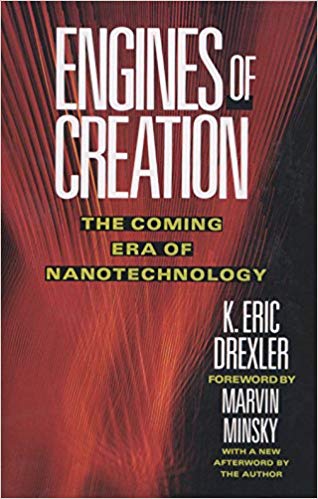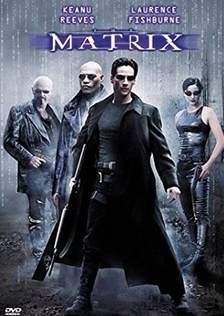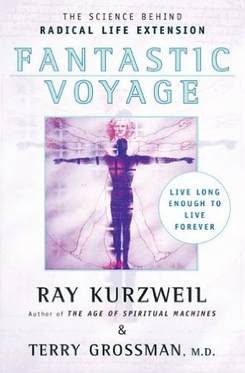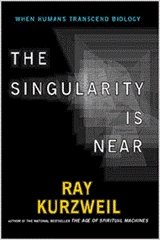The coming era of nanotechnology
by K. Eric Drexler
1986, Anchor Press/Doubleday , 289 pages
Reviewed by Brian R. Wright
 Original review, November 2007.
Original review, November 2007.
One of the watershed books of the life extension movement—or any of half a dozen names given to the rising awareness that we humans are destined to transcend our biological limitations—Engines of Creation by Dr. Eric Drexler lays out the vision for molecular-level engineering. (The approximate dimensions of molecules are in the nanometer—1 billionth of a meter—range, hence the words molecular technology and nanotechnology are synonyms.)
These were heady times in the mid to late 1980s for what I’ll refer to here generically as the “transhumanist” movement. In 1960s and 1970s, Dr. Robert Ettinger had laid out some blueprints for how human beings could reach the next level of evolution: The Prospect of Immortality and Man into Superman. Other scientists and humanists were also debating the ramifications of cryogenic preservation, gene therapy, cloning, nutritional enhancement, and so on. In 1982 researchers Durk Pearson and Sandy Shaw came out with a bestselling book Life Extension: A Practical Scientific Approach.
It’s no accident the life extension and transhumanist movement coincided with the heyday of the Libertarian Party’s impingement on American political consciousness—not to mention the thrust of free-market anarchist, individualist, anti-corporatist, Movement of the Libertarian Left, and innumerable variations on the following theme: “We are free agents, beholden to no central political power, and rational self-interest being a good thing, why not stick around as long as we can, vigorously, youthfully?!”
Engines of Creation describes the foundations of and the issues surrounding humankind’s increasing potential for building molecular machines. (Indeed as we stand here on the verge of 2008, notable accomplishments in nanotechnology continue to be made.) Drexler’s “starter kit” comprises what he calls “universal assemblers,” which are nanomachines designed for a simple task, such as replacing defective genetic links with functional ones or bonding one cellular structure to another: Continue reading



